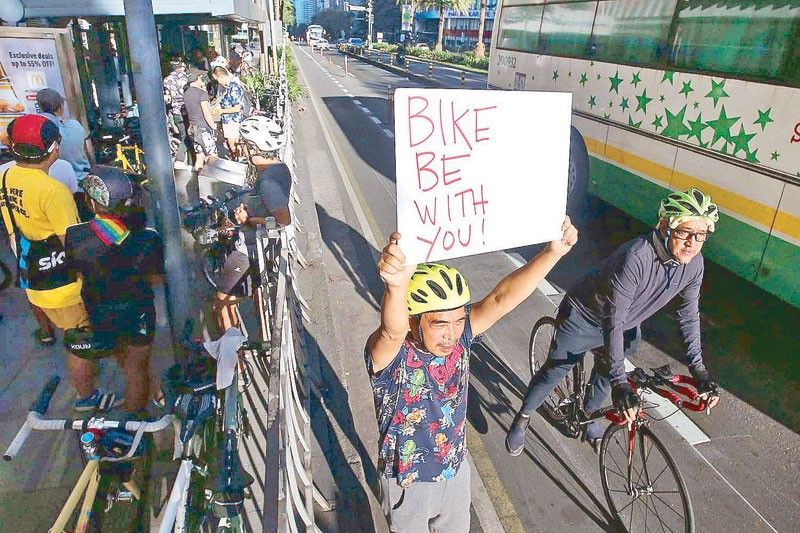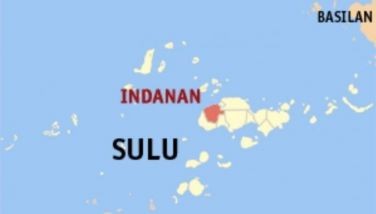Cyclists protest shared bike lanes in Makati

MANILA, Philippines — While cities in other countries are protecting their bike lanes, Makati City, the country’s financial district, is doing a “major step backward” as it has converted all bicycle lanes along Ayala Avenue to shared lanes, according to a group of cyclists.
The Move as One coalition staged a protest yesterday against the move of Make It Makati, a collaboration of the city government, Ayala Land Inc. and the Makati Commercial Estate Association Inc. (MACEA) to demand that the protected bike lanes not be removed for the protection of the cyclists.
Make It Makati informed cyclists and commuters through signages along Ayala Avenue that all bike lanes “will be changed to sharrows (shared lanes) to better serve more commuters” effective Feb. 15.
“We are opposing the move of Make it Makati to remove protected bike lanes along Ayala Avenue. This is a major step backward. All over the world, the most attractive and livable cities are cities where you can walk or bike safely whatever age or ability you have,” said the coalition’s Robert Siy.
“Having sharrows or shared lanes is very dangerous for cyclists and pedestrians because this is to say we are going to allow motor vehicles to move in the same space as the cyclists,” added Siy, an urban and transport planner.
He said the coalition wants to put on notice that “whoever is making this decision is doing this in full knowledge that this will endanger lives.”
“This may place you also accountable in the end if anyone gets injured or killed in the process. Please rethink this decision. You can make Makati better, safer, healthier more attractive by keeping the protected bike lanes and even improving them,” Siy added.
“Shared roads do not make sense. When you remove the bollards (that separate the bike lanes from the motorized vehicles’ lanes) and just leave paints on the road to demarcate the bike lane, that does not protect lives. ‘Paint’ does not physically block people (from imminent harm on the road). You are taking away the space that we deserve,” said Tina Batalla, convenor of the protest ride.
The STAR tried to reach MACEA and Ayala Property Management Corp. but they were unavailable for a comment as of last night.
Siy said car-owning households in Metro Manila are a very small minority, “only 12 percent.” He said majority of Filipinos residing in the city, even in Makati, are people without cars, people who depend on public transport.
“In fact, the national government, through the Department of Transportation and the Department of Public Works and Highways, is improving the major bike lanes around Metro Manila, including EDSA. Those bike lanes will be improved in 2023. So we should not be operating in a way that is out of synch with our major agencies are doing,” Siy said.
“We want to make cycling friendly for everyone because it’s better for everyone. You have cleaner travel. You have healthier individuals. There’s more predictable travel time. There’s low-cost travel,” he added.
“So many people, young and old, whatever income class, are already shifting to cycling.
Let us go with that trend and support it. And make our cities more livable. Make Makati the best and most livable city by retaining the protected bike lanes,” he said.
Siy feared that if the imminent shared lanes will be implemented on Ayala Avenue, “they might start doing it in other places.”
“We hope other property developers will also take this important message, a more livable Philippines is a Philippines that’s more walkable and bikeable. Great cites are cities where people have a high quality of life. They are places where people can walk everywhere and bike everywhere, safely and conveniently,” he said.
- Latest
- Trending
































